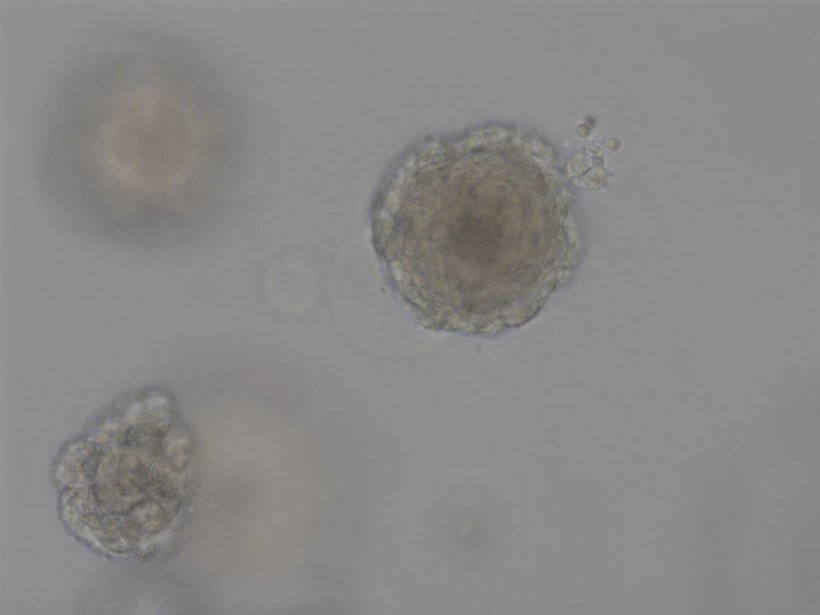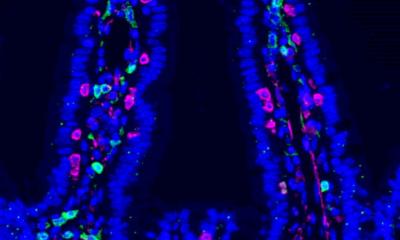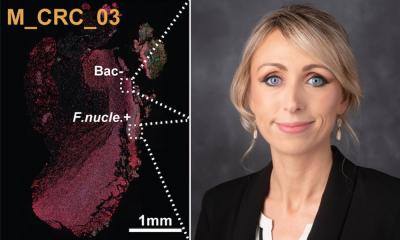
Image source: Science Tokyo
News • Research on MRD in tongue cancer
Understanding chemotherapy resistance in oral cancers using organoids
A novel patient-derived organoid library helps researchers identify promising drug targets, including autophagy and cholesterol synthesis pathways
Tongue cancer (TC) cells can enter a chemo-resistant state by activating pathways related to autophagy and cholesterol synthesis, report researchers from Institute of Science Tokyo. Using a large-scale library of TC organoids they developed, the researchers performed comprehensive comparative analyses of chemo-sensitive and chemo-resistant cells. Their efforts shed light on promising avenues toward new treatments for tongue cancer.
The researchers published their findings in the journal Developmental Cell.
Oral cancer is an increasingly prevalent disease worldwide, with over 300,000 new cases diagnosed each year. Among oral cancers, tongue cancer is the most common type and often carries a poor prognosis. Surgery combined with chemoradiotherapy is one of the main lines of treatment for high-risk cases of TC. However, recurrence rates are high since the tumors can reestablish themselves from only a few surviving cells. A few surviving cells are referred to as minimal residual disease (MRD).
Inhibiting these [cholesterol biosynthesis] pathways with specific inhibitors converted the chemo-resistant TCOs into chemo-sensitive TCOs. Conversely, autophagy activation with appropriate inhibitors conferred chemo-resistance on the chemo-sensitive TCOs
Toshiaki Ohteki
Understanding the mechanisms behind MRD formation is paramount to improving treatment outcomes in TC and many other forms of cancer. To study it, scientists often rely on cancer cell lines as preclinical models, which serve as a convenient tool to test drugs and analyze the roles of genes and proteins. However, cancer cell lines are quite difficult to establish from primary cancer tissues and do not accurately reflect cancer characteristics. This makes comparisons of tumor characteristics between patients challenging.
Against this backdrop, a research team led by Professor Toshiaki Ohteki from Institute of Science Tokyo, Japan, adopted a different approach to shed light on MRD in TC. Instead of trying to establish cancer cell lines, they built a large-scale library of tongue cancer organoids (TCOs) from surgery samples of 28 patients. Organoids are three-dimensional tissue models that mimic organs. As explained in their paper, the team sought to have this library accurately represent the diversity that exists in TC from patient to patient and use it to identify promising treatment avenues.
Organoids allow scientists to replicate the biology of cancer in a controlled lab setting. The team built the TCO library by obtaining tissue samples from 28 untreated patients with TC of different ages and stages of the disease. They used these organoids to conduct comprehensive and comparative analyses, such as functional, genetic/epigenetic, histopathologic characterization, and drug-sensitivity tests. Their experiments revealed new insights into the mechanisms of chemoresistance, namely MRD formation. By treating the TCOs with cisplatin, a key drug in chemotherapy, the researchers found that chemo-resistant TCOs showed a dormant-like state that resembled embryonic diapause—a temporary pause that sometimes occurs during embryo development.
Taking a deeper look, the research team found that chemo-resistant TCOs rely on the activation of autophagy (or ‘internal recycling’) and cholesterol biosynthesis pathways to survive. “Inhibiting these pathways with specific inhibitors converted the chemo-resistant TCOs into chemo-sensitive TCOs. Conversely, autophagy activation with appropriate inhibitors conferred chemo-resistance on the chemo-sensitive TCOs,” highlights Ohteki, “Given that a comparative analysis of our unique TCO library provided insights into the molecular basis of MRD formation, this library may offer an important resource for discovering effective drug targets and biomarkers for chemo-resistant TC cells, thereby helping in the development of personalized medicine,” concludes Ohteki.
With any luck, further efforts down this path will lead to more reliable treatment strategies for challenging oral cancers.
Source: Institute of Science Tokyo
12.01.2025










